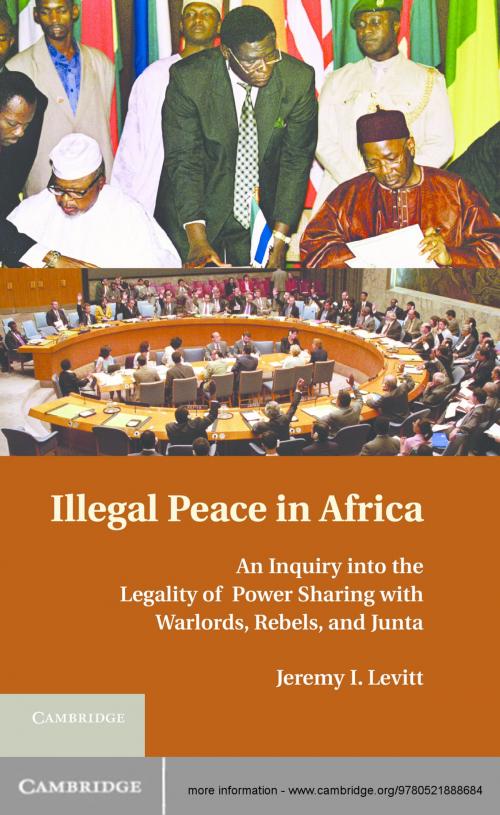Illegal Peace in Africa
An Inquiry into the Legality of Power Sharing with Warlords, Rebels, and Junta
Nonfiction, Reference & Language, Law, International| Author: | Jeremy I. Levitt | ISBN: | 9781139209502 |
| Publisher: | Cambridge University Press | Publication: | January 30, 2012 |
| Imprint: | Cambridge University Press | Language: | English |
| Author: | Jeremy I. Levitt |
| ISBN: | 9781139209502 |
| Publisher: | Cambridge University Press |
| Publication: | January 30, 2012 |
| Imprint: | Cambridge University Press |
| Language: | English |
African states have become testing grounds for Western conflict-resolution experiments, particularly power-sharing agreements, supposedly intended to end deadly conflict, secure peace and build democracy in divided societies. This volume examines the legal and political efficacy of transitional political power-sharing between democratically constituted governments and the African warlords, rebels, or junta that seek to violently unseat them. What role does law indicate for itself to play in informing, shaping and regulating peace agreements? This book addresses this question and others through the prism of three West African case studies: Liberia, Sierra Leone and Guinea-Bissau. It applies the neo-Kadeshean model of analysis and offers a framework for a 'Law on Power-sharing'. In a field dominated by political scientists, and drawing from ancient and contemporary international law, this book represents the first substantive legal critique of the law, practice and politics of power-sharing.
African states have become testing grounds for Western conflict-resolution experiments, particularly power-sharing agreements, supposedly intended to end deadly conflict, secure peace and build democracy in divided societies. This volume examines the legal and political efficacy of transitional political power-sharing between democratically constituted governments and the African warlords, rebels, or junta that seek to violently unseat them. What role does law indicate for itself to play in informing, shaping and regulating peace agreements? This book addresses this question and others through the prism of three West African case studies: Liberia, Sierra Leone and Guinea-Bissau. It applies the neo-Kadeshean model of analysis and offers a framework for a 'Law on Power-sharing'. In a field dominated by political scientists, and drawing from ancient and contemporary international law, this book represents the first substantive legal critique of the law, practice and politics of power-sharing.















